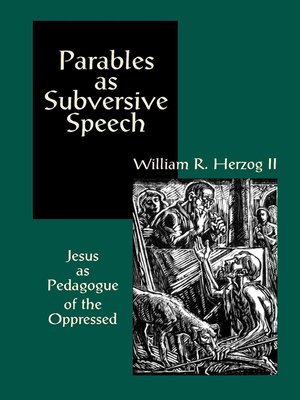
Sign up to save your library
With an OverDrive account, you can save your favorite libraries for at-a-glance information about availability. Find out more about OverDrive accounts.
Find this title in Libby, the library reading app by OverDrive.



Search for a digital library with this title
Title found at these libraries:
| Library Name | Distance |
|---|---|
| Loading... |
William Herzog shows that the focus of the parables was not on a vision of the glory of the reign of God but on the gory details of the way oppression served the interests of the ruling class. The parables were a form of social analysis, as well as a form of theological reflection. Herzog scrutinizes their canonical form to show the distinction between its purpose for Jesus and for evangelists. To do this, he uses the tools of historical criticism, including form criticism and redaction criticism.
|William Herzog shows that the focus of the parables was not on a vision of the glory of the reign of God but on the gory details of the way oppression served the interests of the ruling class. The parables were a form of social analysis, as well as a form of theological reflection. Herzog scrutinizes their canonical form to show the distinction between its purpose for Jesus and for evangelists. To do this, he uses the tools of historical criticism, including form criticism and redaction criticism.







